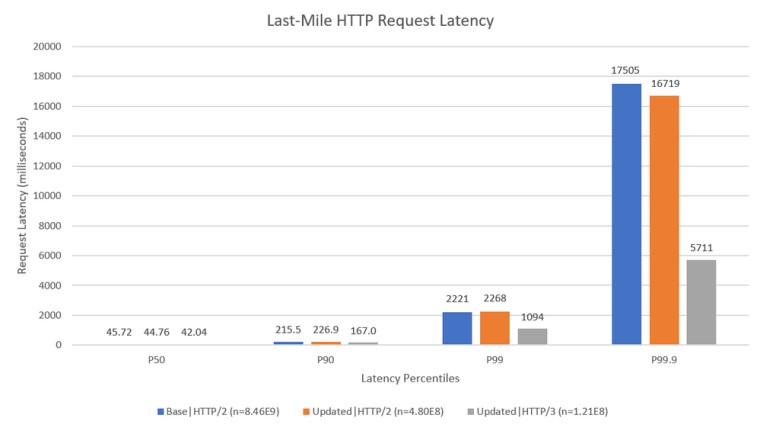
Windows Server 2022 hit general availability (GA) over a month ago, and since then, the Exchange Online team has been working closely with the Microsoft 365 team to deploy HTTP/3 on the Windows Server installations powering Exchange Online front door servers. The main objective is to add support for HTTP/3 on outlook.office.com. Currently, 20% of this deployment has been completed and Microsoft has now shared the results of these upgrades.
The company has provided some details about a metric called last-mile request latency. This is the time spent between the client and the front door server, which means that backend processing time is subtracted from the total request time. It is a very important performance metric especially for Outlook on the Web, as it affects the overall user experience.

As can be seen in the infographic from Microsoft above, there are performance improvements across the board. While the latency reduction is at a modest 8% gain at the 50th percentile, this drastically grows to 67.4% at the 99.9th percentile.
If you"re unaware about how these performance gains have been achieved by changing a protocol, HTTP/3 was officially christened as a major update to HTTP in 2018, and was previously known as HTTP-over-QUIC. As the name implies, instead of using TCP/TLS layers, it leverages QUIC, which stands for Quick UDP Internet Connections. QUIC is faster as it reduces the number of round trips. It is also more secure and builds upon TCP loss recovery.
As Microsoft continues deploying HTTP/3 over all front-end server installations, Microsoft 365 customers who follow the Redmond tech giant"s guidelines when it comes to network connectivity will see varying performance gains, as can be observed in some early deployment results. A tentative timeline for the completion of this upgrade has not been shared yet.